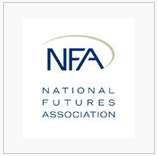NFA Regulated Brokers in the U.S.
Are you looking to improve your understanding of the NFA, and find the best NFA regulated brokers available in the U.S. today? This page has just what you need. Our experts will walk you through what the NFA is and what it does, along with some tips on trading safely with the best brokers regulated by the NFA.
If you’re looking for the top brokers in America, you’re bound to come across the National Futures Association – better known as the NFA. In a nutshell, their job is to help keep you safe when you’re trading. They’re independently run and have a great reputation, so you’ll want to learn more about NFA regulated brokers if you want the best possible trading experience.
If you can’t find many NFA regulated brokers that suit your needs, try some of the best CySEC regulated brokers instead:
- Hot Forex
- XTB
- HYCM
- XM
- Plus500
- FXTM
Best and most trusted forex brokers in April 2024
What is the best NFA regulated broker?
The great thing about trading with the NFA is that you’re enjoying the backing of an independent organization, plus the other institutions it’s associated with, such as the CFTC and CME Group. This gives you a wide scope of brokers to choose from.
It’s very safe to trade with the NFA, which means that deciding which is the best NFA regulated broker really comes down to your own personal preference.
Are NFA regulated brokers safe?
Although the NFA has been at the forefront of regulation since the ’80s, it has only recently become more involved in the protection of consumer rights. This involvement developed when it began working closely with several regulatory organizations such as the CFTC, CME Group, and other SROs.
The NFA, along with the CFTC, performed a major overhaul of the regulatory guidelines. This helped them ensure more rights to the consumer, and prevent firms from taking advantage of unsuspecting customers. Adding such safety measures resulted in a higher calibre of organization, which is why there are so many NFA regulated brokers competing to be the best.
Since 2011, the NFA has been actively participating in regulating the derivatives market by safeguarding client funds against fraud or abuse. It requires all of its members to audit their balance sheets and reports on a daily basis to ensure that there are no discrepancies. NFA also requires all the best brokers to keep customer funds in safe and secure segregated accounts. Essentially, this ensures that customer funds can be returned to their rightful owners if the parent company is liquidated or facing a lawsuit.
What is the NFA?

The concept of creating the NFA was conceived in 1982 by the American Congress. Its aim was to ensure fair practices and conduct from organizations dealing with the general public while rendering services related to retail or OTC trading, such as forex and commodities.
What does the NFA do?
The NFA was introduced so that any firm that is willing to provide derivatives related services to the U.S. traders – including swap dealers and signals providers – must also adhere to the NFA’s strict standards and regulatory guidelines.
Headquartered in Chicago, IL, the main motive behind the NFA is to instill investor confidence in the derivatives markets. To achieve this, they put forward stringent guidelines. Not only do these guidelines safeguard investor interests, but they also act as a platform to resolve issues between a firm and its consumer.
What is a NFA regulated broker?
Membership in the NFA is required for all brokers, signals providers, brokerage firms, swap dealers, and associates who wish to do business on U.S. soil. Only NFA regulated brokers are allowed to offer brokerage services to residents of the U.S., and failure to adhere to the strict NFA regulations can attract heavy penalties and legal action.
Being a non-profit agency, NFA is maintained using membership fees and other dues. This ensures that the NFA is not run using tax payers’ money, and gives more credibility to the organization in favour of the consumer.
According to the legislations passed in 2000 and 2008 by Congress, it is mandatory for all firms participating in the derivatives markets to be registered with the CFTC and become members of the NFA. Amendments to the regulations in 2010 saw the inclusion of swap dealers as well, which pretty much covers all aspects or retail trading in the derivatives market.
What are the advantages and disadvantages of an NFA regulated broker?
There are several advantages – as well as disadvantages – to choosing an NFA regulated broker.
NFA regulation guarantees the safety of client funds, along with providing a medium for arbitration or consumer dispute resolution. It also ensures that the broker remains honest and refrains from indulging in any fraudulent activities.
Choosing an NFA regulated company also ensures that the broker has gone through all the screening procedures as stipulated by the NFA. This allows consumers to browse through a company’s financial profile before deciding on whether they want to user their services or not.
On the flipside, the NFA and CFTC are known to interfere with the freedom of traders by imposing trading restrictions in the name of safeguarding consumer interests. Low leverage, no hedging policies, and scalping rules are all deterrents to a trader who wishes to trade the derivatives market the way he deems fit. Therefore, while NFA regulation is a good thing – especially for traders in the U.S. – traders should carefully analyze the trading policies before choosing an NFA regulated broker.
Fraud, abuse, and making a complaint to the NFA
The outstanding quality guidelines and regulatory by-laws put forward by the NFA have certainly helped in fighting fraud and abuse effectively. When it comes to overall safety and security of client funds, NFA forex brokers are known to offer better protection when compared to brokers that aren’t properly regulated by any recognized agency. In most cases, the best NFA regulated brokers are seen helping their clients, rather than working against them to siphon off their money.
The NFA works as an arbitrator in most customer disputes by offering an easy channel for customers to make claims or file complaints against any NFA member. Backed up with sufficient proof, all customer complaints are attended to in a professional manner. Since 2011, almost all NFA regulated brokers have cooperated with NFA investigations fully.
How to find brokers regulated by NFA
In most cases, regulated brokers will provide detailed information about their own regulation, including license numbers and a link to their registration profile. The NFA also provides an online resource where consumers can perform a background check on all the best NFA regulated brokers, and cross-reference information to ensure that the broker is indeed regulated by the NFA.
Details of regulation are usually printed at the bottom of a broker’s website, the ‘about us’ page, or in their FAQ page. Always verify the authenticity of the broker’s NFA regulation claims before depositing funds in their account.


